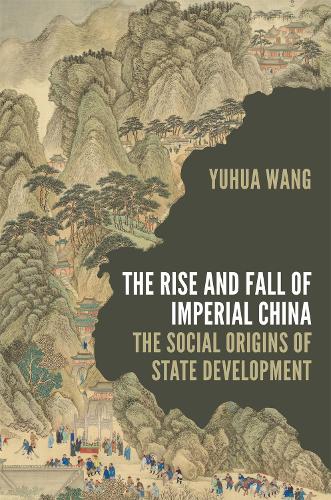
The Rise and Fall of Imperial China: The Social Origins of State Development
(Hardback)
Available Formats
Publishing Details
The Rise and Fall of Imperial China: The Social Origins of State Development
By (Author) Yuhua Wang
Princeton University Press
Princeton University Press
17th January 2023
United States
Classifications
Tertiary Education
Non Fiction
Comparative politics
Colonialism and imperialism
Asian history
International relations
951.03
Physical Properties
Hardback
352
Width 156mm, Height 235mm
Description
How social networks shaped the imperial Chinese state
China was the worlds leading superpower for almost two millennia, falling behind only in the last two centuries and now rising to dominance again. What factors led to imperial Chinas decline The Rise and Fall of Imperial China offers a systematic look at the Chinese state from the seventh century through to the twentieth. Focusing on how short-lived emperors often ruled a strong state while long-lasting emperors governed a weak one, Yuhua Wang shows why lessons from Chinas history can help us better understand state building.
Wang argues that Chinese rulers faced a fundamental trade-off that he calls the sovereigns dilemma: a coherent elite that could collectively strengthen the state could also overthrow the ruler. This dilemma emerged because strengthening state capacity and keeping rulers in power for longer required different social networks in which central elites were embedded. Wang examines how these social networks shaped the Chinese state, and vice versa, and he looks at how the rulers pursuit of power by fragmenting the elites became the final culprit for Chinas fall.
Drawing on more than a thousand years of Chinese history, The Rise and Fall of Imperial China highlights the role of elite social relations in influencing the trajectories of state development.
Author Bio
Yuhua Wang is the Frederick S. Danziger Associate Professor in the Department of Government at Harvard University. He is the author of Tying the Autocrats Hands: The Rise of the Rule of Law in China.
